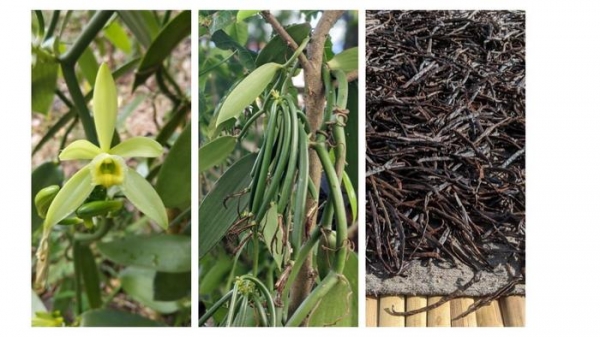Vanilla is vital to the livelihoods of farmers in Madagascar, where the globally popular dessert ingredient is the country’s No. 1 export.
Vanilla is vital to the livelihoods of farmers in Madagascar, where the globally popular dessert ingredient is the country’s No. 1 export. A fun, thought-provoking game designed by a team of scientists and played by Malagasy vanilla farmers reveals the challenges of payment programs that incentivize forest conservation in the region, according to a study led by the University of California, Davis.
The study, published in the February issue of the journal Biological Conservation, found that even amid volatile markets and climate uncertainties, farmers highly value their vanilla crops, which are tied not only to their livelihoods but also their cultural identity. Yet they also recognize the importance of a balanced land-use approach.
“Vanilla farmers often cultivate far more than just vanilla,” said lead author Marie Fleming, a Ph.D. student in Ecology in the UC Davis Department of Environmental Science and Policy. “They grow within rainfed agroecosystems and deeply understand the value of maintaining a healthy mosaic landscape—one that balances food crops, cash crops, and forests. However, achieving this balance while meeting conservation goals can be challenging as farmers face the pressure to expand croplands.”
Read More: University of California - Davis
Vanilla from left to right: flowering, mature green pods, cured black vanilla. (Photo Credit: James Herrera)




